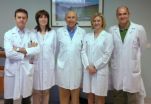(Press-News.org) Medical school policies that restrict gifts to physicians from the pharmaceutical and device industries are becoming increasingly common, but the effect of such policies on physician prescribing behaviour after graduation into clinical practice is unknown.
So a team of US researchers set out to examine whether attending a medical school with a gift restriction policy affected subsequent prescribing of three newly marketed psychotropic (stimulant, antidepressant, and antipsychotic) drugs.
They identified 14 US medical schools with an active gift restriction policy in place by 2004.
They then analysed prescribing patterns in 2008 and 2009 of physicians attending one of these 14 schools compared with physicians graduating from the same schools before the policy was implemented, as well as a control sample of 20 schools that only adopted a gift restriction policy in 2008.
For two of the three drugs examined, attending a medical school with an active gift restriction policy was associated with reduced prescribing of the new drug over older alternatives within the same drug class.
A significant effect was not seen for the third drug.
Among students who had a longer exposure to the policy, or were exposed to more stringent policies, prescribing rates were further reduced.
"Our findings suggest that conflict of interest policies, which have been increasingly adopted by medical schools since 2002, may have the potential to substantially impact clinical practice and reduce prescribing of newly marketed pharmaceuticals," say the authors.
They add: "Future research examining the effect of these policies on medications with varying levels of innovativeness is necessary to establish whether medical school gift restriction policies reduce prescribing of all newly marketed medications or affect prescribing selectively."
### END
Medical school gift restriction policies linked to subsequent prescribing behavior
Prescribing rates reduced among students exposed to active restriction policies
2013-02-01
ELSE PRESS RELEASES FROM THIS DATE:
Planting trees may not reverse climate change but it will help locally
2013-02-01
Afforestation, planting trees in an area where there have previously been no trees, can reduce the effect of climate change by cooling temperate regions finds a study in BioMed Central's open access journal Carbon Balance and Management. Afforestation would lead to cooler and wetter summers by the end of this century.
Without check climate change is projected to lead to summer droughts and winter floods across Europe. Using REMO, the regional climate model of the Max Planck Institute for Meteorology, researchers tested what would happen to climate change in 100 years ...
New stroke gene discovery could lead to tailored treatments
2013-02-01
An international study led by King's College London has identified a new genetic variant associated with stroke. By exploring the genetic variants linked with blood clotting – a process that can lead to a stroke – scientists have discovered a gene which is associated with large vessel and cardioembolic stroke but has no connection to small vessel stroke.
Published in the journal Annals of Neurology, the study provides a potential new target for treatment and highlights genetic differences between different types of stroke, demonstrating the need for tailored treatments. ...
Discovery in synthetic biology takes us a step closer to new 'industrial revolution'
2013-02-01
The scientists, from Imperial College London, say their research brings them another step closer to a new kind of industrial revolution, where parts for these biological factories could be mass-produced. These factories have a wealth of applications including better drug delivery treatments for patients, enhancements in the way that minerals are mined from deep underground and advances in the production of biofuels.
Professor Paul Freemont, Co- Director of the Centre for Synthetic Biology and Innovation at Imperial College London and principle co-investigator of the study, ...
The genome of rock pigeon reveals the origin of pigeons and the molecular traits
2013-02-01
January 31, 2013, Shenzhen, China – In a study published today in Science, researchers from University of Utah, BGI, and other institutes have completed the genome sequencing of rock pigeon, Columba livia, among the most common and varied bird species on Earth. The work reveals the evolutionary secrets of pigeons and opens a new way for researchers to study the genetic traits controlling pigeons' splendid diversity. The findings also help to fill the genetic gaps in exploiting pigeon as a model for the molecular genetic basis of avian variation.
People are quite familiar ...
Placental blood flow can influence malaria during pregnancy
2013-02-01
Malaria in pregnancy causes a range of adverse effects, including abortions, stillbirths, premature delivery and low infant birth weight. Many of these effects are thought to derive from a placental inflammatory response resulting from interaction of infected red blood cells with the placental tissue. In a study published in the latest issue of the journal PLOS Pathogen*, a researchers' team led by Carlos Penha-Gonçalves at the Instituto Gulbenkian de Ciência (IGC), Portugal, observed, for the first time, the mouse placental circulation and showed how it can influence the ...
Sequencing hundreds of chloroplast genomes now possible
2013-02-01
Researchers at the University of Florida and Oberlin College have developed a sequencing method that will allow potentially hundreds of plant chloroplast genomes to be sequenced at once, facilitating studies of molecular biology and evolution in plants.
The chloroplast is the compartment within the plant cell that is responsible for photosynthesis and hence provides all of the sugar that a plant needs to grow and survive. The chloroplast is unusual in containing its own DNA genome, separate from the larger and dominant genome that is located in every cell's nucleus. ...
Examining the so-called Basque mutation of Parkinson's
2013-02-01
This press release is available in Spanish.
The relationship between genetics and Parkinson's has been investigated for more than a decade, but it is only over the last few years that significant results have begun to be obtained. The first mutations related to the development of this disease were found in 2004. A team from the UPV/EHU-University of the Basque Country came across a mutation of the LRRK2 gene, which is particularly prevalent among the population of Gipuzkoa. It is the R1441G mutation and is known as the Basque mutation. Now, Doctor Javier Ruiz, a doctor ...
NASA sees a coronal mass ejection erupt from the sun
2013-02-01
On Jan. 31, 2013 at 2:09am EST, the sun erupted with an Earth-directed coronal mass ejection or CME. Experimental NASA research models, based on observations from the Solar Terrestrial Relations Observatory (STEREO) and ESA/NASA's Solar and Heliospheric Observatory, show that the CME left the sun at speeds of around 575 miles per second, which is a fairly typical speed for CMEs. Historically, CMEs at this speed are mild.
Not to be confused with a solar flare, a CME is a solar phenomenon that can send solar particles into space and reach Earth one to three days later.
Earth-directed ...
The effective collective: Grouping could ensure animals find their way in a changing environment
2013-02-01
For social animals such as schooling fish, the loss of their numbers to human activity could eventually threaten entire populations, according to a finding that such animals rely heavily on grouping to effectively navigate their environment.
Princeton University researchers report in the journal Science that collective intelligence is vital to certain animals' ability to evaluate and respond to their environment. Conducted on fish, the research demonstrated that small groups and individuals become disoriented in complex, changing environments. However, as group size is ...
Evidence of geological 'facelift' in the Appalachians
2013-02-01
How does a mountain range maintain its youthful, rugged appearance after 200 million years without tectonic activity? Try a geological facelift – courtesy of the earth's mantle.
Researchers from North Carolina State University noticed that a portion of the Appalachian Mountains in western North Carolina near the Cullasaja River basin was topographically quite different from its surroundings. They found two distinct landscapes in the basin: an upper portion with gentle, rounded hills, where the average distance from valley to mountain top was about 500 feet; and a lower ...
LAST 30 PRESS RELEASES:
Kidney cancer study finds belzutifan plus pembrolizumab post-surgery helps patients at high risk for relapse stay cancer-free longer
Alkali cation effects in electrochemical carbon dioxide reduction
Test platforms for charging wireless cars now fit on a bench
$3 million NIH grant funds national study of Medicare Advantage’s benefit expansion into social supports
Amplified Sciences achieves CAP accreditation for cutting-edge diagnostic lab
Fred Hutch announces 12 recipients of the annual Harold M. Weintraub Graduate Student Award
Native forest litter helps rebuild soil life in post-mining landscapes
Mountain soils in arid regions may emit more greenhouse gas as climate shifts, new study finds
Pairing biochar with other soil amendments could unlock stronger gains in soil health
Why do we get a skip in our step when we’re happy? Thank dopamine
UC Irvine scientists uncover cellular mechanism behind muscle repair
Platform to map living brain noninvasively takes next big step
Stress-testing the Cascadia Subduction Zone reveals variability that could impact how earthquakes spread
We may be underestimating the true carbon cost of northern wildfires
Blood test predicts which bladder cancer patients may safely skip surgery
Kennesaw State's Vijay Anand honored as National Academy of Inventors Senior Member
Recovery from whaling reveals the role of age in Humpback reproduction
Can the canny tick help prevent disease like MS and cancer?
Newcomer children show lower rates of emergency department use for non‑urgent conditions, study finds
Cognitive and neuropsychiatric function in former American football players
From trash to climate tech: rubber gloves find new life as carbon capturers materials
A step towards needed treatments for hantaviruses in new molecular map
Boys are more motivated, while girls are more compassionate?
Study identifies opposing roles for IL6 and IL6R in long-term mortality
AI accurately spots medical disorder from privacy-conscious hand images
Transient Pauli blocking for broadband ultrafast optical switching
Political polarization can spur CO2 emissions, stymie climate action
Researchers develop new strategy for improving inverted perovskite solar cells
Yes! The role of YAP and CTGF as potential therapeutic targets for preventing severe liver disease
Pancreatic cancer may begin hiding from the immune system earlier than we thought
[Press-News.org] Medical school gift restriction policies linked to subsequent prescribing behaviorPrescribing rates reduced among students exposed to active restriction policies




